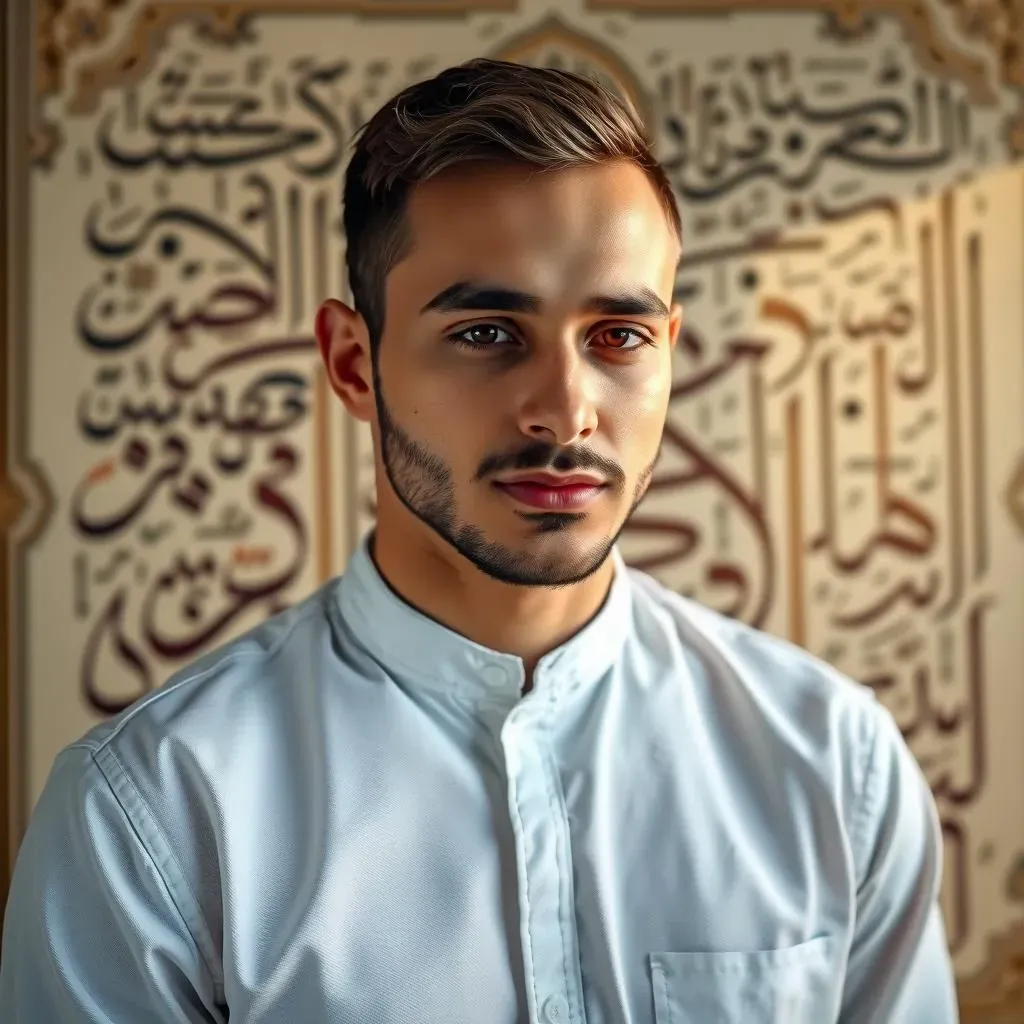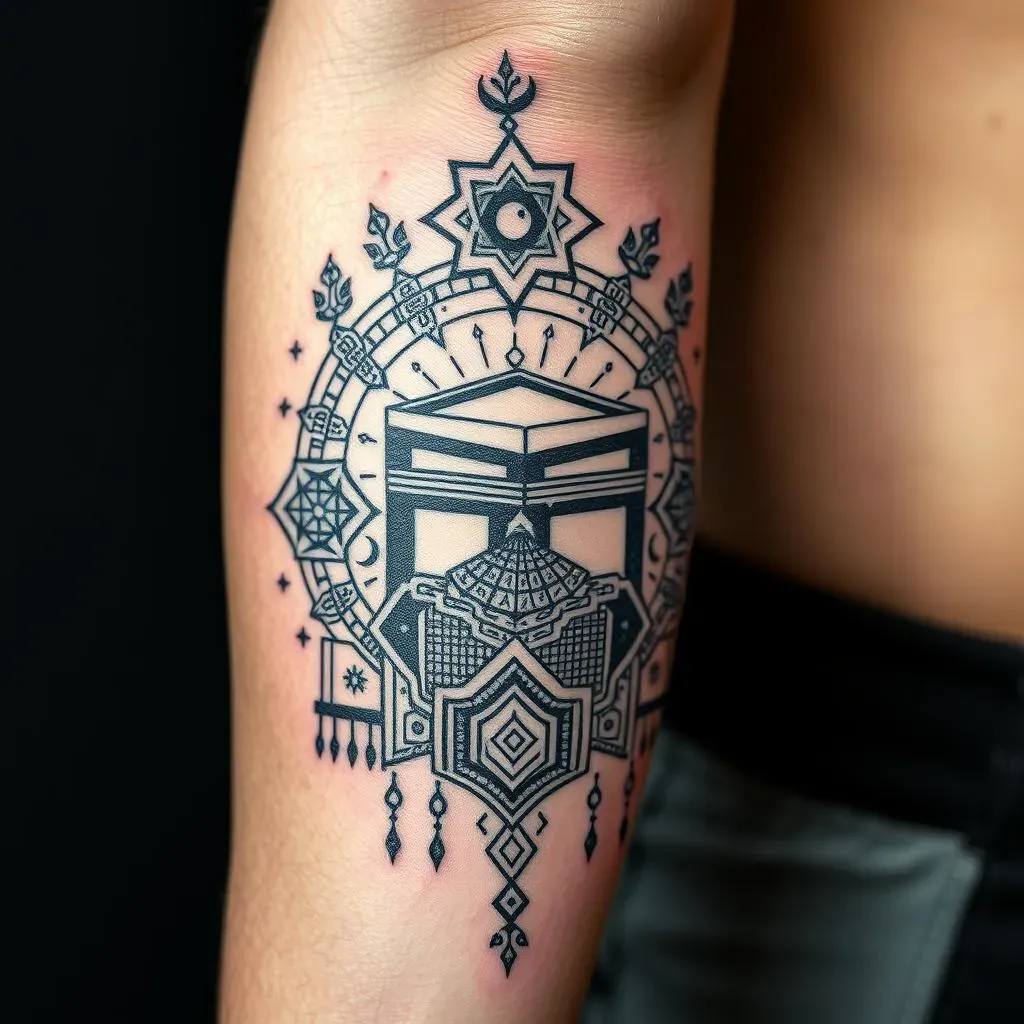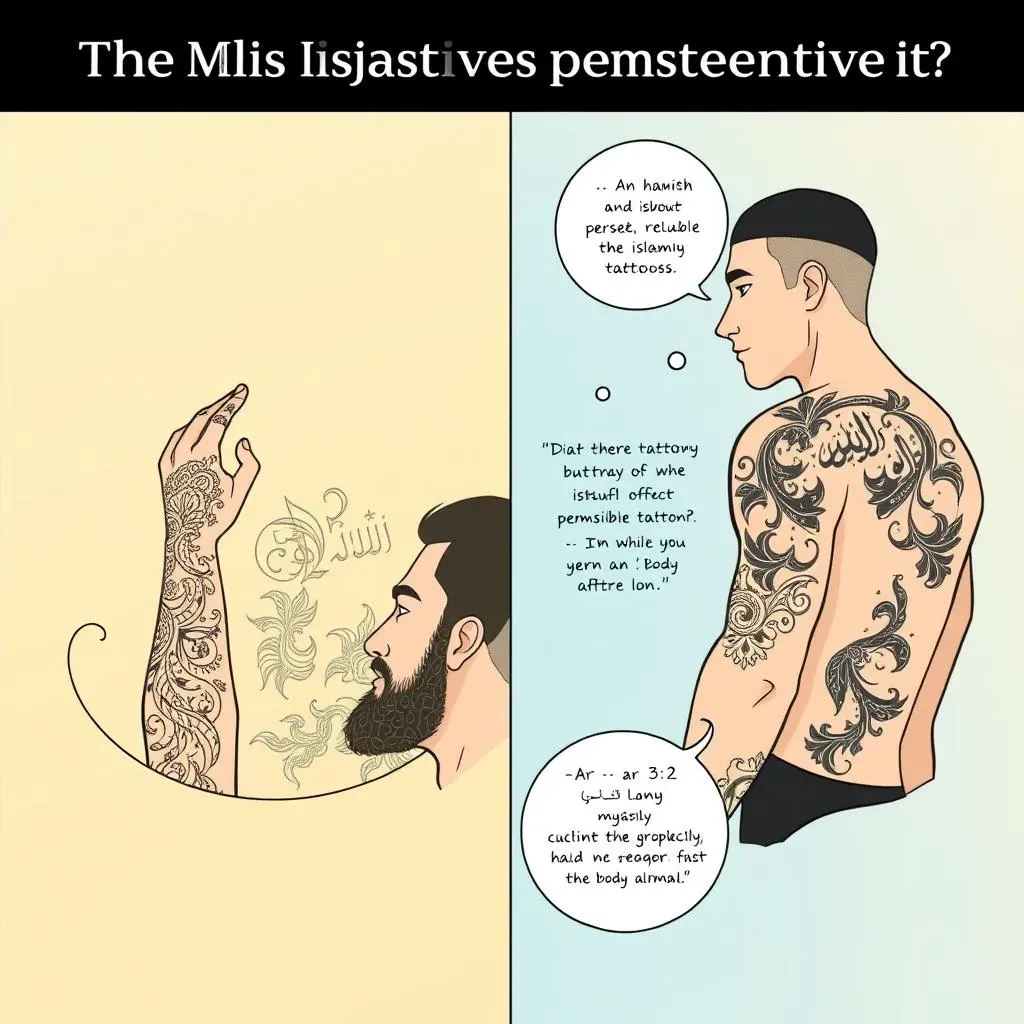Table of Contents
Thinking about getting inked with something that reflects your faith? You're not alone. Many guys are looking for ways to express their beliefs through body art, and that's where "islamic tattoo ideas for men" come in. This isn't just about pretty pictures; it's about finding designs that resonate with you on a deeper level. We're going to explore the beauty of Islamic calligraphy, looking at how powerful words and verses can be transformed into stunning tattoos. We'll also check out other symbolic designs that carry significant meaning within the Islamic tradition. But hold on, before you rush to the tattoo parlor, we'll also tackle the big question: what does Islam actually say about tattoos? It's a bit of a tricky area, and it's important to understand the different perspectives. So, get ready to journey through the world of Islamic-inspired tattoos, where art meets faith, and discover what truly speaks to you. We'll be looking at how you can get a tattoo that's both meaningful and respectful of your beliefs.
Exploring Islamic Calligraphy: Meaningful Tattoos for Men
Exploring Islamic Calligraphy: Meaningful Tattoos for Men
The Art of Arabic Script
Islamic calligraphy isn't just fancy writing; it's a powerful art form with deep roots. Think of it like drawing with words. Each curve and stroke in Arabic script has meaning, making it perfect for tattoos that want to say something more than just look cool. It's not about randomly picking letters; it's about choosing phrases or verses that speak directly to your heart. These words can be from the Quran, or maybe a saying from the Prophet Muhammad – something that represents your faith and your values. It’s like wearing your beliefs on your sleeve, but in a way that’s both beautiful and meaningful.
When you're choosing calligraphy, think about how the words will look on your skin. Do you want a bold, flowing script that wraps around your arm? Or something more delicate and precise, perhaps on your wrist or chest? The placement and the style of the calligraphy can change the whole vibe of the tattoo. Plus, it’s important to get the text right! A tiny mistake can change the meaning of the phrase completely, which could be a little embarrassing. So, always double-check with someone who knows their Arabic before you commit to the ink. It’s about respect for the language and the message you are choosing to display.
Finding the Right Words
So, you're into the idea of a calligraphy tattoo, but where do you start? It's about finding the right words that resonate with you. Maybe you're drawn to a verse that reminds you of God’s mercy, or a phrase that inspires you to be a better person. Some guys choose the names of God, like "Ar-Rahman" (The Most Compassionate) or "Al-Ghaffar" (The Forgiver). Others go for meaningful phrases like "SubhanAllah" (Glory be to God) or "Alhamdulillah" (All praise is due to God). It's all about what speaks to you personally and what message you want to carry with you. It's not about what looks good, it's about what *feels* right.
Don't just settle for some random quote you found online. Really research the meaning and make sure it aligns with your own beliefs. Maybe even talk to someone who's knowledgeable about Islam to get their take. You want your tattoo to be a source of pride and inspiration, not something you regret later. Think of it as a conversation starter – it's a chance to share your faith with others and maybe even educate them a little bit. It's not just ink on your skin; it's a statement of who you are and what you believe in.
Calligraphy Style | Common Meanings | Best Placement |
|---|---|---|
Thuluth | Elegant, often used for Quranic verses | Back, Chest |
Kufic | Bold, geometric, historical | Forearm, Shoulder |
Naskh | Clear, readable, traditional | Wrist, Ankle |
Symbolic Islamic Designs and Their Significance for Men's Tattoos
Symbolic Islamic Designs and Their Significance for Men's Tattoos
Beyond Words: Exploring Islamic Symbols
Okay, so calligraphy is cool, but what if you're looking for something a bit more visual? That's where Islamic symbols come into play. These aren't just random shapes; they're packed with meaning and history. Think of them as visual shortcuts to deeper ideas. For example, the star and crescent aren't just about a flag; they symbolize the Islamic calendar and the beginning of Ramadan. It's a way to connect with the rhythm of your faith, not just its text. You can get a tattoo of a star and crescent and it can be a constant reminder of those things.
Then there’s the Hamsa hand, which some people see as a symbol of protection against the evil eye. It's not specifically Islamic, but it's found in many cultures in the Middle East, including some Muslim communities. It’s kind of like a cultural mash-up that’s been adopted by many. It’s also a cool design that can be customized to your style. And let's not forget geometric patterns! Islamic art is famous for its intricate designs. These patterns aren't just pretty; they represent the infinite nature of God. They're a way to show the complexity and beauty of your faith without using words. It's like having a piece of artwork on your skin that’s also a symbol of your beliefs.
"The beauty of Islamic art lies in its ability to convey profound spiritual truths through both calligraphy and geometric forms." - A quote from a famous artist.
Meaning Behind the Designs
Choosing a symbol is about more than just liking the way it looks; it's about understanding what it represents. For instance, a depiction of the Kaaba, Islam's holiest site, can be a way to express your deep connection to the faith and your longing for the pilgrimage. It's like carrying a piece of Mecca with you wherever you go. It’s a serious commitment, so it's not something to get on a whim. The same goes for the Mihrab, the niche in a mosque wall that indicates the direction of prayer. It's a symbol of devotion and a reminder to stay focused on your spiritual path. These symbols aren't just for show; they are a way to keep your faith present in your everyday life.
And then you've got the more abstract symbols, like the eight-pointed star, which represents paradise in Islamic tradition. It's a subtle way to express your hope for the afterlife. These designs can be pretty cool and can have hidden depth that’s not obvious to everyone. It's all about picking a symbol that feels right for you and your journey. It’s your body, your story, so make sure your tattoo speaks to you personally. It’s about having a tattoo that is meaningful to you, not just a symbol that looks cool.
Symbol | Meaning | Considerations |
|---|---|---|
Star and Crescent | Islamic calendar, Ramadan | Common symbol, cultural significance |
Hamsa Hand | Protection, good fortune | Cultural, not strictly Islamic |
Geometric Patterns | Infinity of God, beauty | Can be complex, customizable |
Kaaba | Holy site, pilgrimage | Deeply religious, consider placement |
Navigating Islamic Perspectives on Tattoos for Men
Navigating Islamic Perspectives on Tattoos for Men
The Great Debate: Are Tattoos Haram?
Okay, let's get to the tricky part. When it comes to "islamic tattoo ideas for men," there's a big question that always pops up: are tattoos even allowed in Islam? It's not as simple as a yes or no answer, and you'll find different opinions among scholars. Some say that permanent tattoos are haram (forbidden) because they alter God's creation. It's like you're trying to improve on what God made, which, according to this view, is not cool. They often point to hadiths (sayings of the Prophet) that talk about avoiding changing the body permanently.
But then you have other scholars who take a more nuanced approach. They argue that if a tattoo is just for decoration and doesn't involve any harmful substances or disrespect towards religious beliefs, then it might be permissible. It really comes down to intent and interpretation. It's like the difference between getting a cool sticker and permanently changing your face, you know? So, before you get inked, it’s important to do your research, talk to people who know their stuff, and make a decision that you feel comfortable with. It’s your faith, your body, your choice – but it’s a choice you should make with open eyes.
Temporary Options and Alternative Views
If you're feeling a bit unsure about permanent ink, there are other options to explore. Temporary tattoos, like henna, are generally accepted by most scholars, since they fade over time. It's like getting to try out a design without making a lifetime commitment, you know? You can use henna to create beautiful calligraphy or geometric patterns, and it's a great way to express your faith without crossing any lines you're not comfortable with. It's a win-win situation!
Another thing to consider is that some scholars differentiate between tattoos that are purely for aesthetic purposes and those that have some kind of symbolic or religious significance. For example, if you're getting a tattoo that's a reminder of God or a verse from the Quran, some might view that differently than a random design. But, again, this is where the differences in opinion come in, so it's important to do your homework. It’s about respect, intention, and making sure you’re on a path that feels right for you and your faith. It's not about blindly following rules, but understanding the reasoning behind them.
Viewpoint | Arguments | Considerations |
|---|---|---|
Tattoos are Haram | Permanent alteration of God's creation, hadiths against changing the body | Strong stance, needs careful consideration |
Tattoos are Permissible | If done without harmful intent, no disrespect towards religion, purely aesthetic | More nuanced view, allows for some flexibility |
Temporary Tattoos | Generally accepted, not permanent | Good compromise, less commitment |
Tattoo's intent | Symbolic and religious significance can be viewed differently than just aestetic | Deeply religious, consider placement |
Making a Personal Decision
At the end of the day, choosing whether or not to get an Islamic-inspired tattoo is a personal decision that you need to make with both knowledge and conviction. It's not about what your friends are doing or what you see on social media. It's about understanding your faith and what feels right for you. Take your time, talk to religious leaders, and really think about what you want your tattoo to represent. It’s like making any other big decision in life – you need to weigh the pros and cons and make a choice that aligns with your values.
And remember, your faith is about more than just tattoos. It’s about how you treat others, how you live your life, and how you connect with God. A tattoo is just one way to express your faith, and it’s not the only way. So, whether you decide to get a tattoo or not, remember that the most important thing is to be a good person and to live a life that’s pleasing to God. It's about your heart, not just your skin. It’s about being authentic to yourself and your faith journey. It’s about being a good person, and a good Muslim.
“The true essence of faith lies not in the symbols we wear, but in the actions we take and the values we uphold." - A famous scholar quote.